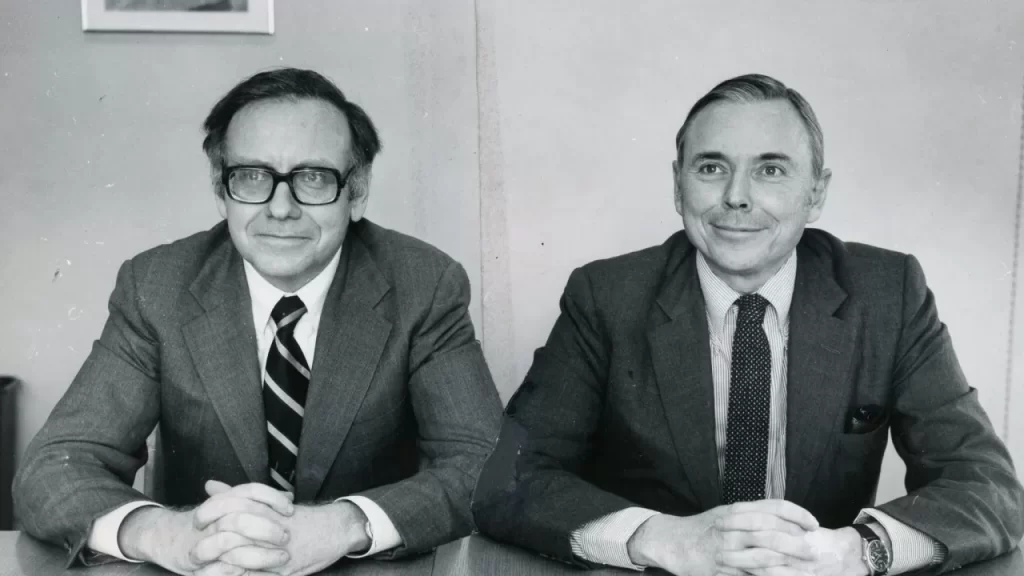
Leadership Lessons
Applying Charlie Munger’s Psychology Principles to Our Work and Lives
This month’s Leadership Lesson is authored by Justin Gillmar.
One of the things I value most about working at Ardeo is our shared commitment to constantly improving how we work and make decisions. This benefits not only our clients and students but also our personal growth as professionals. In that spirit, I want to share some timeless wisdom from Charlie Munger, Warren Buffett’s long-time business partner, who is renowned for his deep understanding of human psychology and decision-making.
These principles aren’t just for investors—they’re powerful tools for anyone looking to make better decisions and achieve better outcomes, both in work and in life.
1. Incentive-Caused Bias
Munger emphasizes that people’s decisions are highly influenced by incentives. He believes that understanding the power of incentives is crucial, as they can either drive desired outcomes or cause individuals to act irrationally or even unethically if personal gain is prioritized over the collective good. Application: If you are a manager, ensure incentives align with Ardeo’s broader mission and long-term goals. And avoid incentives that create only short-term personal gain.
2. Cognitive Dissonance
This principle refers to the discomfort people feel when holding contradictory beliefs or when their actions conflict with their beliefs. Munger explains that people often rationalize poor decisions to reduce this discomfort, rather than admit they were wrong. Application: One of the key aspects of overcoming cognitive dissonance is creating an environment where it’s safe to admit mistakes and adjust course. At Ardeo, we encourage continuous learning and improvement and want to be an environment where identifying and correcting poor decisions is celebrated as growth rather than a failure.
3. Confirmation Bias
People tend to seek out information that supports their pre-existing beliefs and ignore data that contradicts them. Munger cautions that confirmation bias can lead to faulty decision-making and that investors should actively seek out opposing viewpoints. Application: We practice this at Ardeo by taking an objective approach to data analysis, starting with forming hypothesis and using A/B testing and pilots to ensure data-driven decisions.
4. Availability Bias
This bias occurs when individuals give more weight to information that is readily available or more recent, rather than making decisions based on all relevant facts. Munger advises staying aware of this bias to avoid giving undue importance to easily accessible information. Application: We should always be on the lookout for new sources of data and information as well as-longer term trends instead of only what’s most readily available.
5. Social Proof (Herd Mentality)
Munger emphasizes that humans have a strong tendency to follow the crowd, often without independent analysis. He warns against blindly following trends and encourages independent thinking.
6. Anchoring Bias
People often rely too heavily on the first piece of information they encounter (the “anchor”), even if it’s irrelevant. Munger advocates for flexibility and not allowing initial information to overly influence decisions. Application: Actively challenge initial assumptions and reframe the problem – or better yet, invert it.
7. Loss Aversion
Humans tend to fear losses more than they value gains. Munger stresses the importance of recognizing this tendency to make more objective, less emotionally driven decisions.
8. Reciprocity Bias
This principle revolves around the human inclination to return favors. Munger highlights that reciprocity can lead to compromised decision-making when people feel obligated to return a favor that might cloud objective judgment.
9. Deprival-Superreaction Tendency
This principle explains why people overreact to losing something they feel entitled to. Munger warns that this tendency can lead to irrational decisions, such as holding onto losing investments in an attempt to avoid loss. Application: Let’s strive to be objective and let things go that aren’t working – a “stop-loss” or predefined criteria with measurable thresholds to trigger a review or decision to stop a project can be useful.
10. Over-Optimism and Overconfidence
Munger believes people are naturally inclined to be over-optimistic, especially regarding their own abilities. He advocates for tempering optimism with a more realistic view of the facts, which helps avoid mistakes. Application: We value optimism and positivity at Ardeo but let’s not wear rose-colored glasses. Solicit other points of view and welcome critical feedback to ensure plans are realistic and thoughtful.
These principles are powerful tools that can help us all think more critically and act more effectively in our roles. By recognizing how our minds work, we can make smarter, more informed decisions—whether in our personal development, prospect and client interactions, or internal processes.
I encourage you to reflect on these principles and think about how they apply to your work. What biases might be influencing your decisions, and how can we use this knowledge to improve our work and outcomes?
Let’s continue to support one another in becoming better thinkers, problem-solvers, and decision-makers.